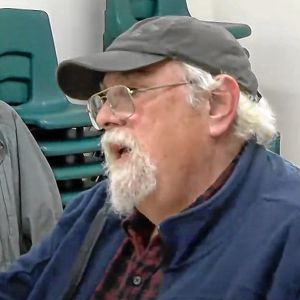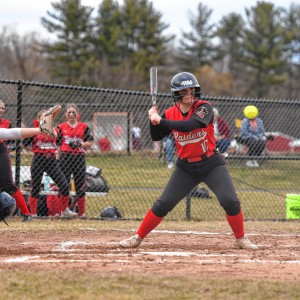The Real Score with Ajhanai “AJ” Keaton: Sport is the mirror Americans now need most

Ajhanai “AJ” Keaton
| Published: 02-20-2025 4:59 PM |
Within the disciplines of sport management and sociology of sport, there is a common phrase that many sport academicians know to be true: Sport is a microcosm of our social world. This phrase argues that sport is a repackaged enterprise of our values, politics, culture, economics, etc.
Such a disposition understands sport serves as a mirror for us to understand dynamics, interactions, and realities of our society. This taken-for-granted phrase in the sport disciplines is actualizing and crystallizing before our eyes, but I am concerned many of us are disregarding the moment.
In the last few weeks, American socio-cultural and socio-political issues have been exceptionally visible through sport. For example, Canadian hockey fans are booing our national anthem because of proposed 25% tariffs and ongoing trade negotiations with Canada.
Roger Goodell, the NFL Commissioner, stood ten toes down on diversity, equity, and inclusion (DEI) being beneficial to the success of the NFL. Albeit he was not supposed to hold such a perspective, the NFL was expected and assumed to be joining the anti-DEI brigade like other notable corporate enterprises; Wal-Mart and Target specifically.
Pulitzer award-winning hip-hop artist, Kendrick Lamar, used his now infamous halftime show to communicate a message of resistance to Black Americans. He specifically stated, “40 acres and a mule, this is bigger than the music.” His reference to 40 acres and mule was dispelling the fact that Black Americans never received reparations for being enslaved, so his use of the phrase subliminally communicated, “Forget playing my pop songs that could bring us all together” – this moment, the socio- political and socio-cultural context we are in and have been through is bigger than this halftime show.
These moments demonstrate how sport is simultaneously a site of resistance for social issues and spectacle of entertainment. Such a dichotomy is not new, but I do want sport fans and non-sport fans alike to lean into this particular moment. As much as 2016 antagonists of Colin Kaepernick wanted sports to remain free of politics, the last few weeks should signal to us that sport is and has always been political.
Rather than using sport as a form of escapism, how can we lean into sport as a space for critical reflection? How can U.S. sport fans and non-sport fans use sport as a looking glass for assessing our cognitive dissonance as it pertains to American policy (i.e., trade relations with Canada), American cultural wars (i.e., anti-DEI movement and legislation), and American history (i.e., Kendrick Lamar halftime show)?
Cognitive dissonance is a psychological phenomenon that occurs when a person holds two contradictory beliefs at the same time. Rather than downplaying our northern neighbor’s frustration through their incessant booing at hockey games, how about we learn about the impact of American policy upon their economy? If Roger Goodell, longstanding commissioner of the world’s most successful sport league values DEI, why not investigate how DEI has positively contributed to not only league profit but the accumulation of new fans, sponsors, and international exposure and opportunity.
Article continues after...
Yesterday's Most Read Articles
 Long-vacant former Faces spot in Northampton gets new tenant
Long-vacant former Faces spot in Northampton gets new tenant
 Here come the sweetness: Four new businesses prepping to open in downtown Northampton
Here come the sweetness: Four new businesses prepping to open in downtown Northampton
 Local ‘Hands Off!’ standouts planned as part of national effort
Local ‘Hands Off!’ standouts planned as part of national effort
 Area property deed transfers, April 4
Area property deed transfers, April 4
 Hatfield Select Board removes elected Housing Authority member
Hatfield Select Board removes elected Housing Authority member
 Shutesbury reviewing how to improve safety on Lake Wyola in wake of accident last summer
Shutesbury reviewing how to improve safety on Lake Wyola in wake of accident last summer
Maybe you don’t like hip-hop, but Kendrick Lamar clearly states a phrase during the Super Bowl halftime show that is unfamiliar to you, consider looking into the history of “40 acres and a mule,” and how this broken promise has led to over a century of economic harm inflicted upon the Black community, with decades of resentment to match.
The resistance and spectacle symmetry of sport means sport will never achieve cognitive consonance, which is when a person’s core beliefs and values align. If you perceive sport as a form of escapism that should be rid of social issues, this sort of cognitive consonance will not be achieved. I am not advocating that you agree with the array of socio-cultural and socio-political playing out in sport, I am simply tasking each of us to engage in the intellectual practice of curiosity. Sport is a microcosm of our social world, why not become curious about our reflection?
Ajhanai “AJ” Keaton joined the McCormack Department of Sport Management, housed in the Issenberg School of Management at UMASS Amherst last September. An Assistant Professor, her research interests includes issues at the intersection of sports media, social politics, and organizational behavior. Ahjahani can be reached at akeaton@isenberg.umass.edu. The Real Score is a monthly column that runs the third Friday of each month in this space, written by a rotating cast of McCormack faculty members.






 Amherst’s Ryan Leonard scores first career NHL goal in Capitals’ win over Blackhawks
Amherst’s Ryan Leonard scores first career NHL goal in Capitals’ win over Blackhawks HS Roundup: Ella Schaeffer, South Hadley softball blanks Easthampton 11-0 (PHOTOS)
HS Roundup: Ella Schaeffer, South Hadley softball blanks Easthampton 11-0 (PHOTOS) High school softball preview 2025: Hampshire Regional returns plenty of talent
High school softball preview 2025: Hampshire Regional returns plenty of talent  On The Run with John Stifler: Fast walkers
On The Run with John Stifler: Fast walkers
